Electric car depreciation — An in-depth guide
Electric car depreciation refers to how an electric vehicle (EV) loses value over time.
Just like petrol and diesel cars, EVs start to lose value as soon as they leave the showroom. From here on, they’re classed as second-hand vehicles.
Get a free valuation
What is car depreciation?
Car depreciation refers to the reduction in a vehicle’s market value over time.
Depreciation is considered one of the biggest cost factors when it comes to buying or running a car.
By understanding each of these factors, and how they come into play, you’ll be in a better position to track deprecation, and decide when to sell your electric car.
What is residual value?
Residual value is a closely linked term, which refers to the value a car retains after depreciation.
For example, if 60% of its brand-new value was lost at the three-year mark, the residual value would be 40%.
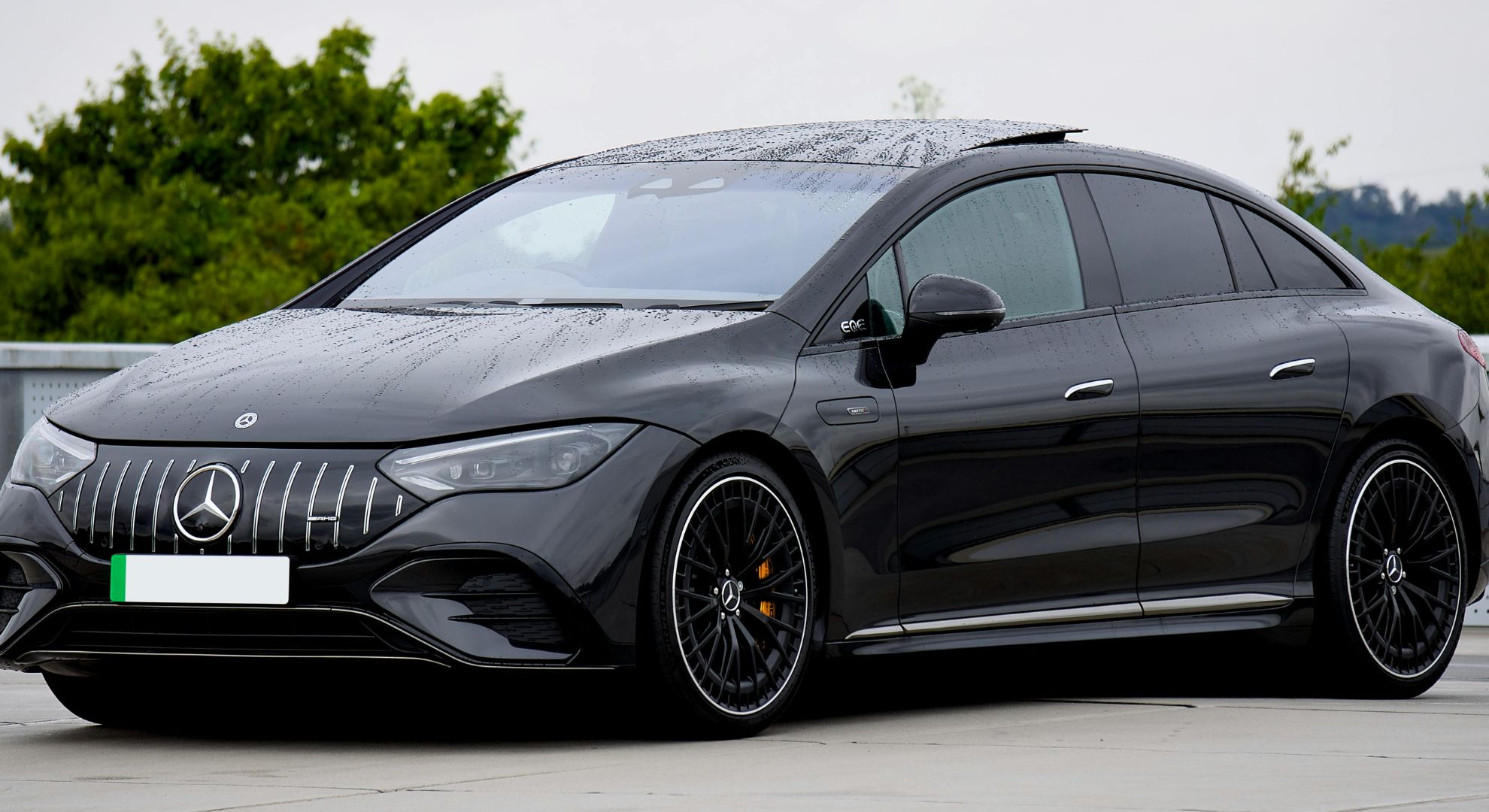
What causes electric vehicle depreciation?
An electric car’s resale value may be affected by a range of factors, including mileage, condition, and fluctuations in market demand. We’ll cover these in detail later in this guide.
Different EV models lose value at different rates. Whilst it’s very rare for a used car to recover its full value, some models tend to hold on to their value better than others.
You’ll usually see the steepest electric car depreciation within the first five years. The depreciation curves for most models taper off by the 10-year mark, as by this stage, most of the value has already been lost.
Electric car depreciation trends
The following graph, created using webuyanycar and industry standard CAP data shows the average depreciation for EVs, compared with petrol, diesel, and hybrid cars.*
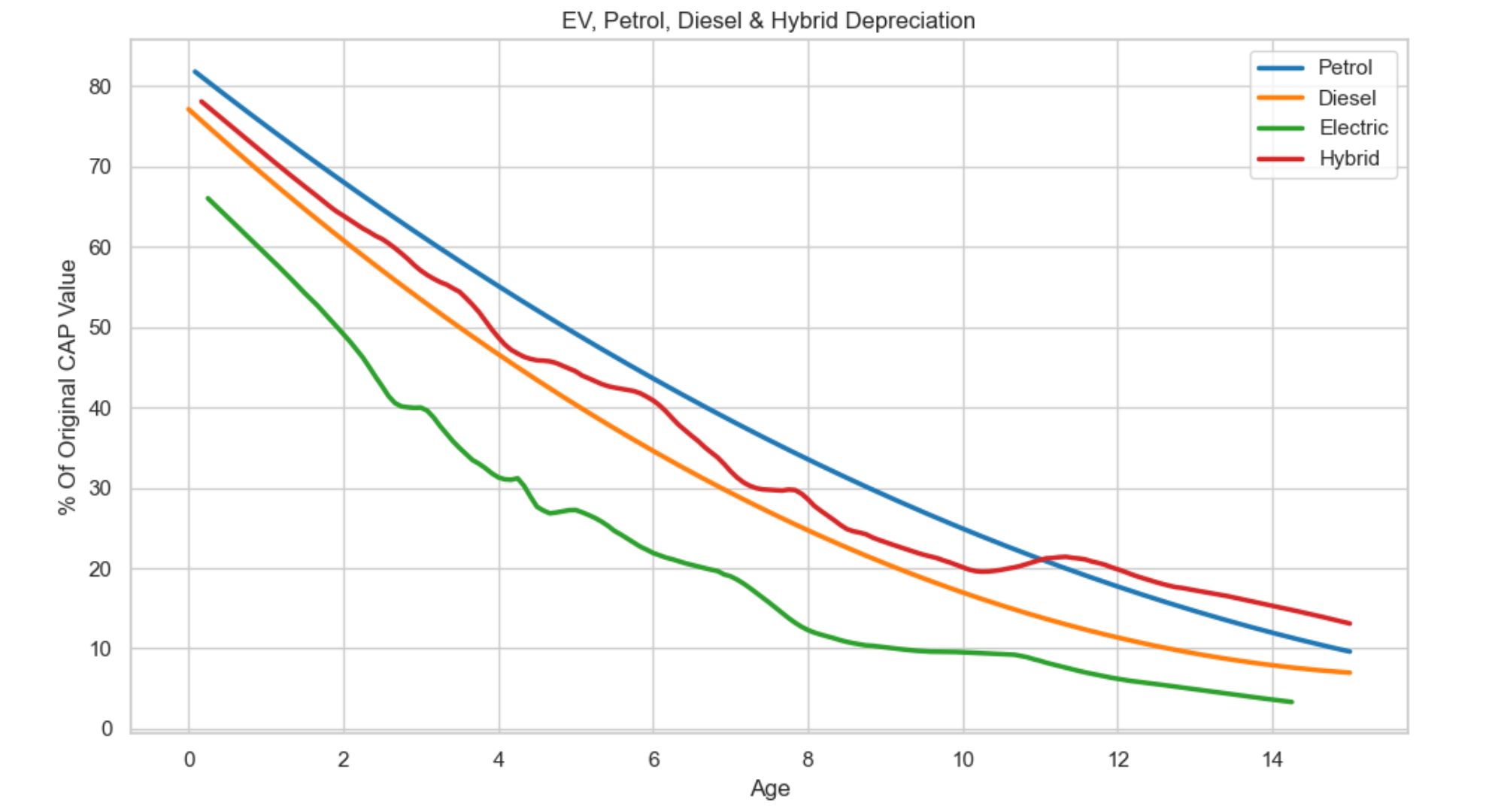
*Disclaimer: Webuyanycar are not predicting future increases or decreases in your car’s market value. Changes in value can occur due to a variety of factors, including the vehicle’s age, mileage, condition, and the level of market demand. Learn more about what affects car value.
How much does an electric car depreciate every year?
The rate of annual depreciation for electric cars can vary significantly depending on the model.
However, our data shows that the average EV has lost around 40% of its original value by the time it is one year old – and 50% by the two-year mark.
In contrast, the average rate of depreciation is notably slower for other fuel types; petrol, diesel, and hybrid cars all retain more than 65% of their value at the one-year mark – and more than 60% at two years.
The data shows that EVs consistently depreciate more - and the gap between EVs and other fuel types only narrows after year eight.
Models with strong brand reputations, performance, and higher ranges often hold their value better than the average EV.
Which EVs depreciate faster?
Glass’s June 2025 market update also revealed that in May 2025, the overall average depreciation at three years/36,000 miles across all fuel types was 49.3%.
The breakdown of average depreciation by fuel type was as follows:
- Petrol: 47.1%
- Diesel: 47.6%
- Hybrid electric vehicle (HEV): 44.2%
- EV: 61.1%
This data makes it clear that the average EV loses significantly more value than other car types during the first three years.
However, it’s important to note that as of June 2025, the average price for a medium-sized car was £26,875, but the average prices of an EV was around £46,000.
More expensive EVs, including luxury and performance models often depreciate faster and lose more cash value, especially as more advanced alternatives hit the market.
However, this isn’t always the case. Some EVs hold their value well, with depreciation curves comparable to equivalent internal combustion engine (ICE) models.
If you’re ready to make the switch to electric motoring, but want to avoid heavy depreciation, researching the market carefully is key!
Which models offer the best electric car resale value?
When it comes to electric car resale value, you should consider how much value is retained at the 36-month mark.
Here’s a list of the EV models with some of the strongest resale values:
| EV model | Retained value at 36 months |
|---|---|
| Skoda Enyaq | 60.35% |
| Volkswagen ID.4 | 55.85% |
| Mercedes-Benz EQA | 53.75% |
| Polestar 2 | 51.99% |
| Volkswagen ID.3 | 51.94% |
Source: Carmoola
Slowest depreciating electric cars in the UK
Some EVs on the market will see steeper value loss than others. This may be due to factors such as low demand, aging technology, reliability concerns, or the release of new generations.
These models have recorded the steepest depreciation at the 36-month mark:
| EV model | Retained value at 36 months |
|---|---|
| Renault ZOE | 37.27% |
| Audi E-Tron | 41.05% |
| Nissan Leaf | 41.24% |
| Jaguar I-PACE | 43.35% |
| BMW i3 | 45.52% |
Source: Carmoola
What factors contribute to electric car depreciation?
Advancing technology
The UK’s EV market is maturing, with a wider selection of EV models now available with improved electric ranges, technology, and performance.
Just like smartphones, older EVs depreciate faster as newer and more advanced models join the market. EVs with limited features and ranges lose the most resale value when these market changes occur.
Battery replacement cost
Replacement costs for EV batteries can run from £2,000 to over £10,000. As such, used buyers usually want reassurance that the battery is in good working order before committing.
Battery warranties
EV battery technology is improving with every generation – and many modern EVs come with generous battery warranties.
For example, Tesla’s Model 3 and Model Y are available with an 8-year/100,000-mile battery warranty, with a minimum allowable capacity of 70%. So, if the capacity falls below this level whilst under warranty, the manufacturer will repair or replace the battery.
These warranties help to boost consumer confidence and preserve some resale value for these EVs. However, resale values for older EVs that are no longer under warranty often suffer as a result.
Battery management
Regular fast charging, constantly depleting the battery below 20%, or charging above 80%, and exposure to extreme hot or cold temperatures can accelerate EV battery degradation.
Managing your EV batteries responsibly can help to slow battery-related depreciation.
If you’re preparing to sell your EV and want to instil battery-conscious buyers with confidence, it’s worth obtaining a State of Health (SoH) certificate for your EV battery. This includes a percentage score indicating the battery’s health and capacity at the time of testing.
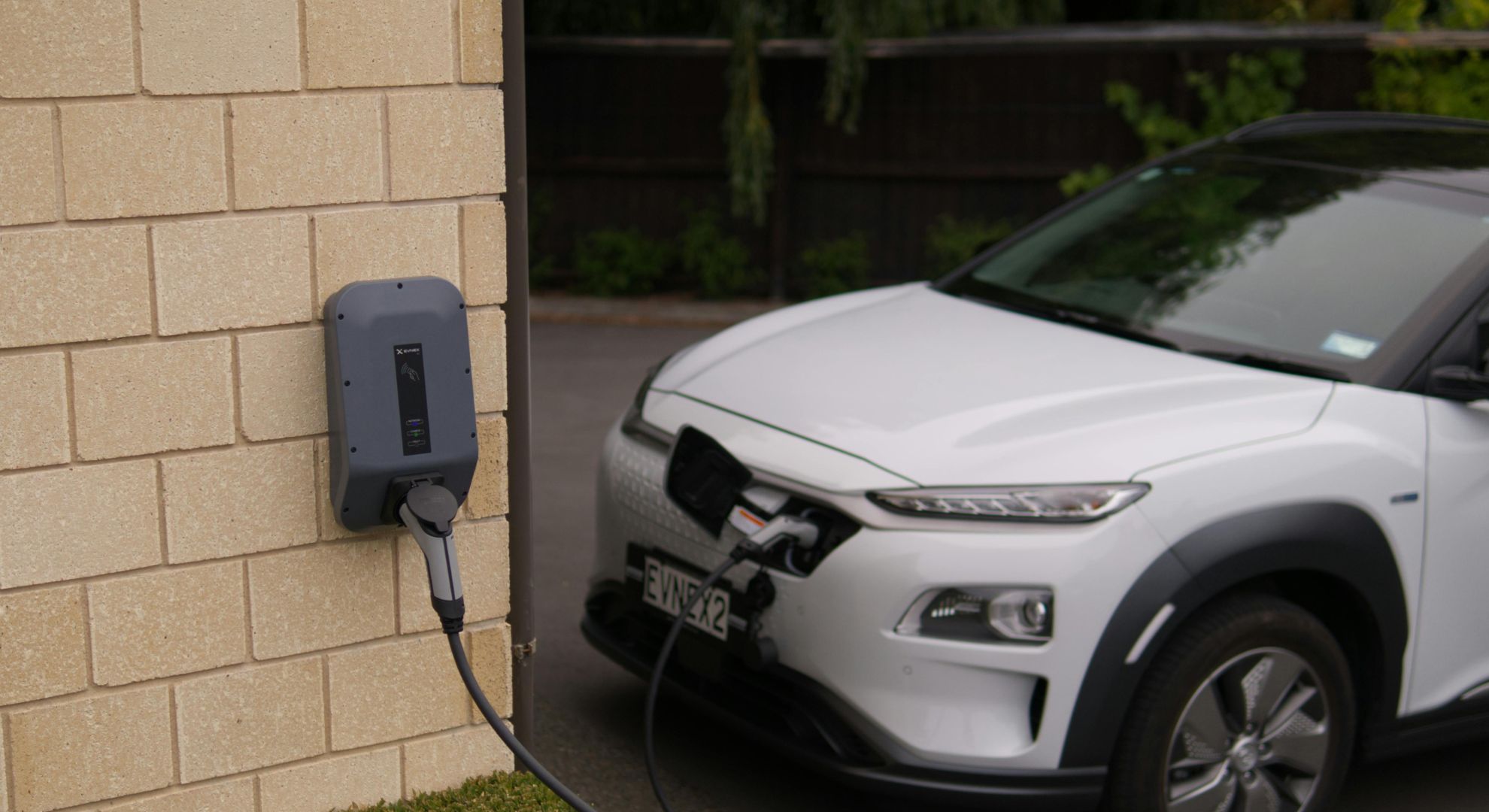
Manufacturer discounts
Some EV manufacturers offer discounts on their new models to compete with nearly new options ahead of the annual car tax changes on April 1st each year.
For example, Vauxhall cut the prices for its entire EV range below £40,000 so that buyers would avoid the ‘Expensive car supplement’ - an additional annual car tax levied on owners of EVs with a list price of £40,000 or more.
These discounts often level prices for new models with nearly new equivalents, which can negatively impact resale values for those newer used models.
However, the effect on EVs in the 3-5-year-old bracket and older models is less pronounced.
Supply and demand
When the available supply of used EVs outweighs consumer demand, this can cause prices to fall.
Conversely, if demand for a particular model is high, and it’s comparatively scarce in the showrooms, you can expect resale values to rise.
Charging infrastructure
Range anxiety, the fear of running out of charge due to poor public charge point availability was historically one of the biggest barriers to EV adoption.
Whilst this is still a worry for some, charging infrastructure has significantly improved in recent years.
According to zapmap, as of the end of June 2025, there were 82,369 public EV charge points across the UK. This is sufficient for the 1,550,000 EVs currently on the road.
However, it may take some time for the public to fully shake off the old perception that public charging infrastructure is trailing behind.
Broader car depreciation factors
In this section, we’ll take a look at some of the broader factors that can cause EVs and internal combustion engine (ICE) cars to lose value.
Age and mileage
Cars lose value as they get older, as their design, features, and technology become dated. New cars also quickly lose the prestige of bearing the latest registration plate.
The starkest value loss occurs within the first three years. The average new car loses around 60% of its value by the three-year mark – and depreciation usually slows down by Year 10.
As a car’s mileage increases, it succumbs to more wear and tear - and the risk of developing costly faults also rises. A higher-than-average mileage often causes greater value loss due to the higher perceived risk among buyers.
Desirability and brand reputation
EV models with market appeal and a reputation for quality, prestige, or performance tend to see less depreciations. Popular premium EV brands in the UK include Mercedes-Benz, BMW, and Polestar.
Less desirable or niche models may depreciate faster, particularly if they have reputational issues, such as high recall rates.
Modifications
Modifications affect resale value.
Any changes that alter the car’s looks or performance in a way the manufacturer did not intend can hurt resale value. Niche, subjective, or irreversible mods may also prematurely reduce your electric car’s value.
Condition and service history
If a car is in poor cosmetic or mechanical condition, this can also accelerate depreciation.
Buying a used car carries a higher level of risk, so many buyers prefer to see a comprehensive service history, which proves that the owner has serviced and maintained the vehicle in line with the manufacturer’s recommendations.
How long do electric car batteries last?
Electric car batteries typically last for over 10 years or over 100,000 miles before the reduction in range renders them impractical. However, it’s not unusual for batteries to last twice that long!
Therefore, the lifespan of a modern EV is comparable to an equivalent petrol or diesel car.
Why do EV batteries degrade over time?
Most modern EVs use lithium-ion batteries, which gradually degrade with each charge/use cycle. Over time, their capacity will shrink, which will also slowly reduce the vehicle’s electric range.
Unlike many smaller electronic items, degradation for EV batteries is very gradual. Many modern EV batteries retain over 90% of their original capacity after several years.
How does battery degradation affect an EV?
When the battery degrades, this predominantly affects the vehicle’s electric range. The impact on acceleration and performance are minimal.
For example, industry tests showed that an eight-year-old Nissan Leaf had lost around 20% of its battery range and capacity compared to when it was brand new.
EVs and battery replacement
Historically, EV batteries were very expensive to replace. However, replacement costs fell by 89% between 2010 and 2023 from more than £1,000 per kilowatt-hour to approximately £110.
This means the financial impact of battery replacement is significantly less than it was just a few years ago.
Nevertheless, the perceived cost of battery replacement continues to impact confidence in EVs for some buyers.
Despite the drastic price drop, EV batteries can still cost thousands, making replacement outside of warranty unaffordable to some drivers.
Whilst some buyers worry about the sustainability of EV batteries, they can be recycled or repurposed for stationary energy storage applications.
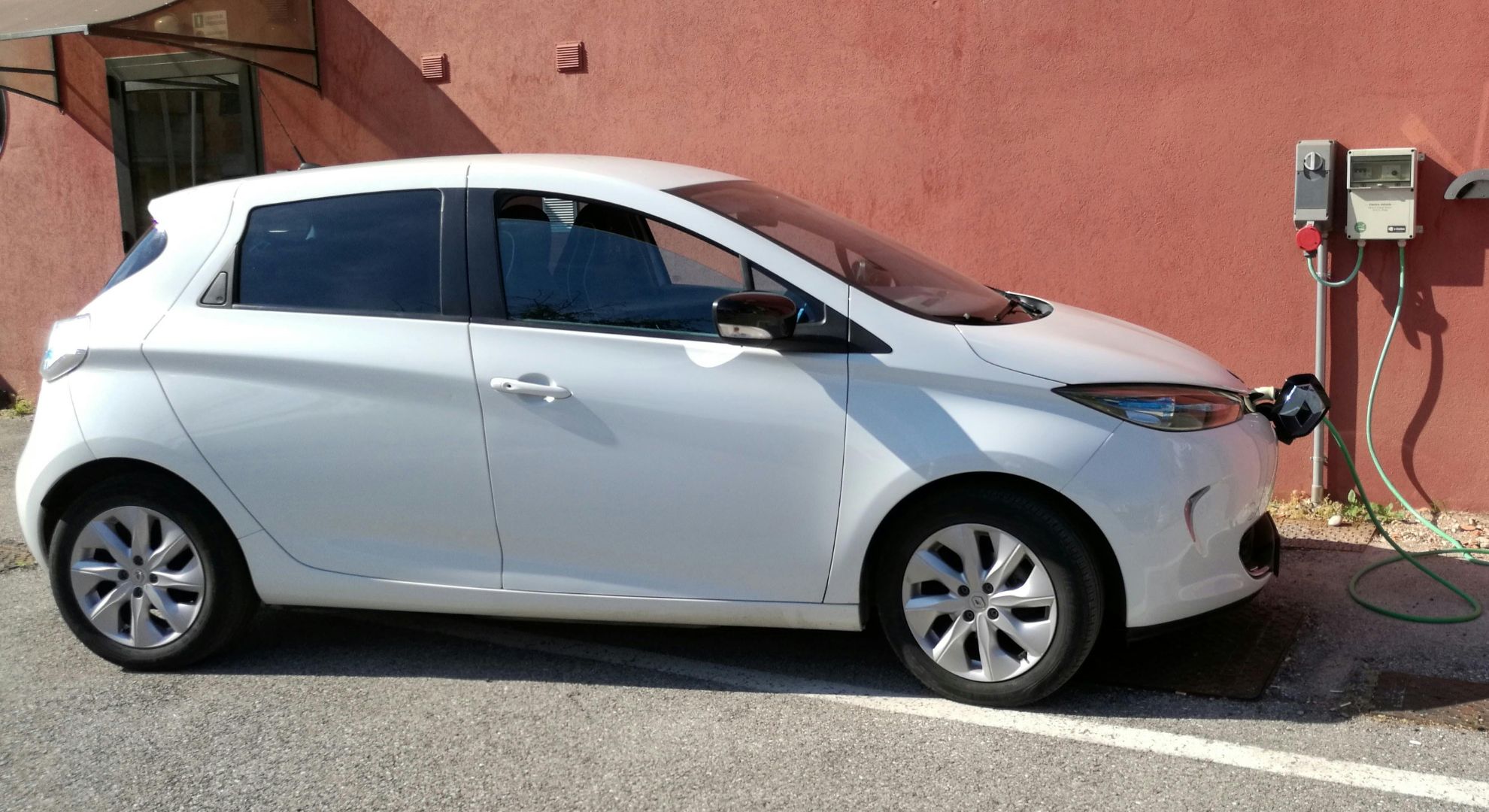
Tips for preventing EV depreciation
- Keep up with your servicing and maintenance schedule, ensuring your EV has a full service history.
- Avoid frequent fast charging. This can cause premature battery wear for many models.
- For many EV batteries, keeping the charge level between 20% and 80% unless you’re undertaking a long journey can help to preserve range and capacity.*
- Park in the shade where possible. Prolonged exposure to sunlight can accelerate battery degradation.
- Avoid aggressive acceleration, braking, and driving.
- During the cold winter months, make sure you wash your car regularly. A buildup of grit from the roads can cause your EV to rust prematurely, accelerating depreciation.
*Thanks to technological advances, the latest EV batteries have more sophisticated battery management systems (BMS), which prevent charging once the battery reaches capacity.
This makes it almost impossible to overcharge - and helps to protect battery health.
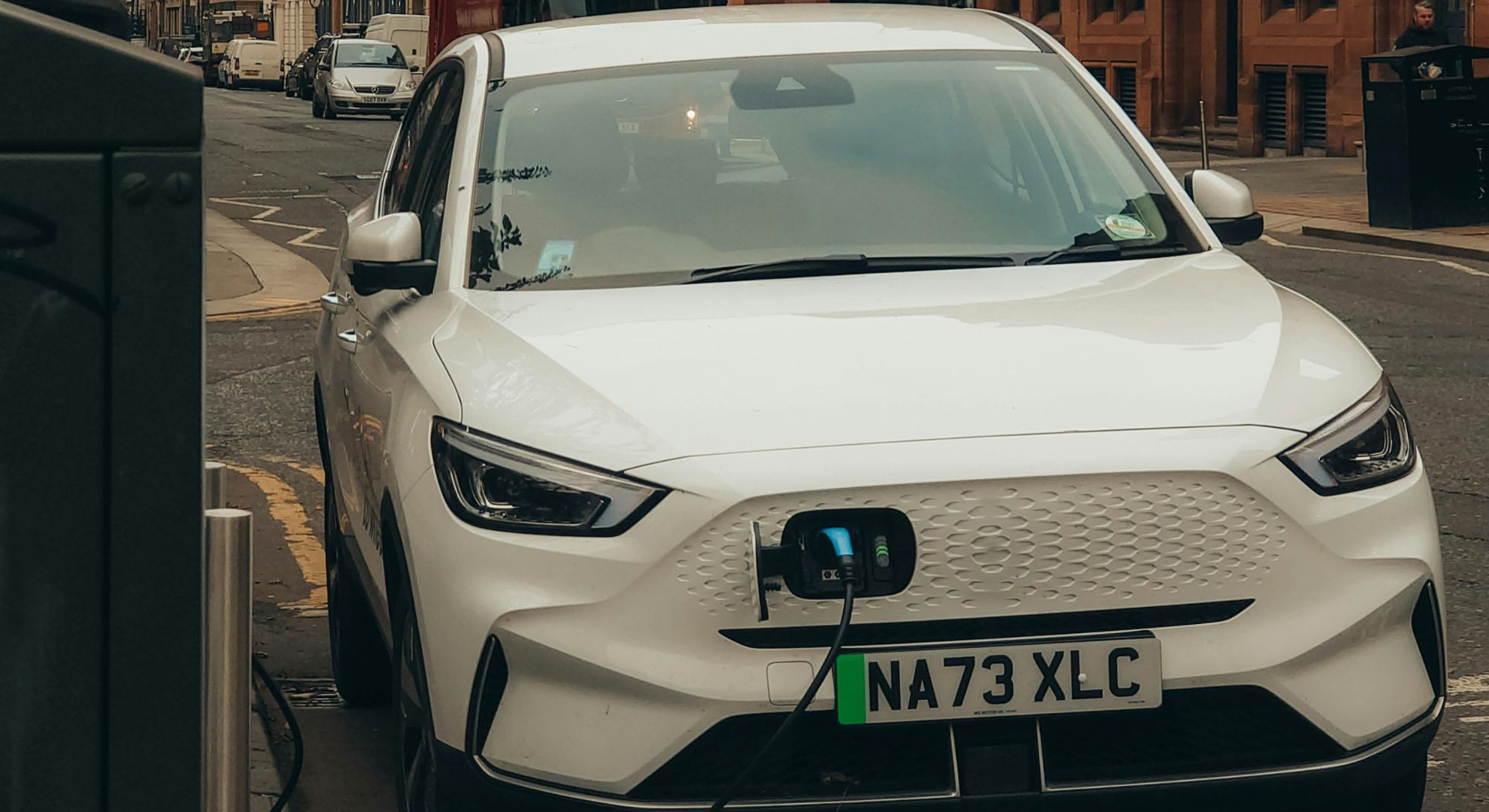
Choosing a slow depreciating EV: Tips for buyers
Want to choose an EV that’s less prone to depreciation? Follow these helpful tips:
Consider buying used
If you want your money to go further, buying a used EV is usually the best option. Opting for an EV that’s between one and five years old can help you strike the right balance between affordability and reliability.
This way, you’ll avoid the financial hit that occurs in the first 12 months, whilst still enjoying the benefits of relatively new technology.
When new prices for models such as the Peugeot e-208 and Vauxhall’s Corsa-e were cut by the manufacturer, this also had a knock-on effect on used prices.
Although this may have been unwelcome news for anyone who had recently bought one of these EVs new, it also presented an opportunity for used buyers to go electric without breaking the bank.
Choose a reputable brand and model
If you want an EV that will hold its value, you’re better off sticking with manufacturers with a strong reputation in the EV market (e.g. Hyundai, Polestar, BMW, or Mercedes-Benz.)
You should choose a model that has a good reputation for longevity and reliability. Models such as BMW’s i3, Tesla’s Model 3, Polestar’s 2, and Hyundai’s Kona Electric have all scored highly in various reliability reports.
Consider battery health and range
- Longer-range EVs tend to hold their value better.
- Choosing a model with a range of at least 250 miles should help you protect more of your investment. Remember, an EV’s real-world electric range will slowly deteriorate over time.
- If you’re buying used, don’t forget to request a battery SOH report. This will show you how much of the original battery capacity remains, giving you an indication of how long it’s likely to last.
Older EVs: Proceed with care
- Older EV models had limited ranges from the start. Their real-world ranges will shrink even more due to long-term battery degradation.
- Replacing the battery for older EVs is often prohibitively expensive. The cost may even exceed the overall value of the car!
- Older cars in general are more susceptible to wear, tear, and expensive mechanical faults, which could cause your EV’s resale value to take a serious hit.
- If you’re set on buying an older EV, invest in an inspection from an independent mechanic, and a battery SOH report before committing.
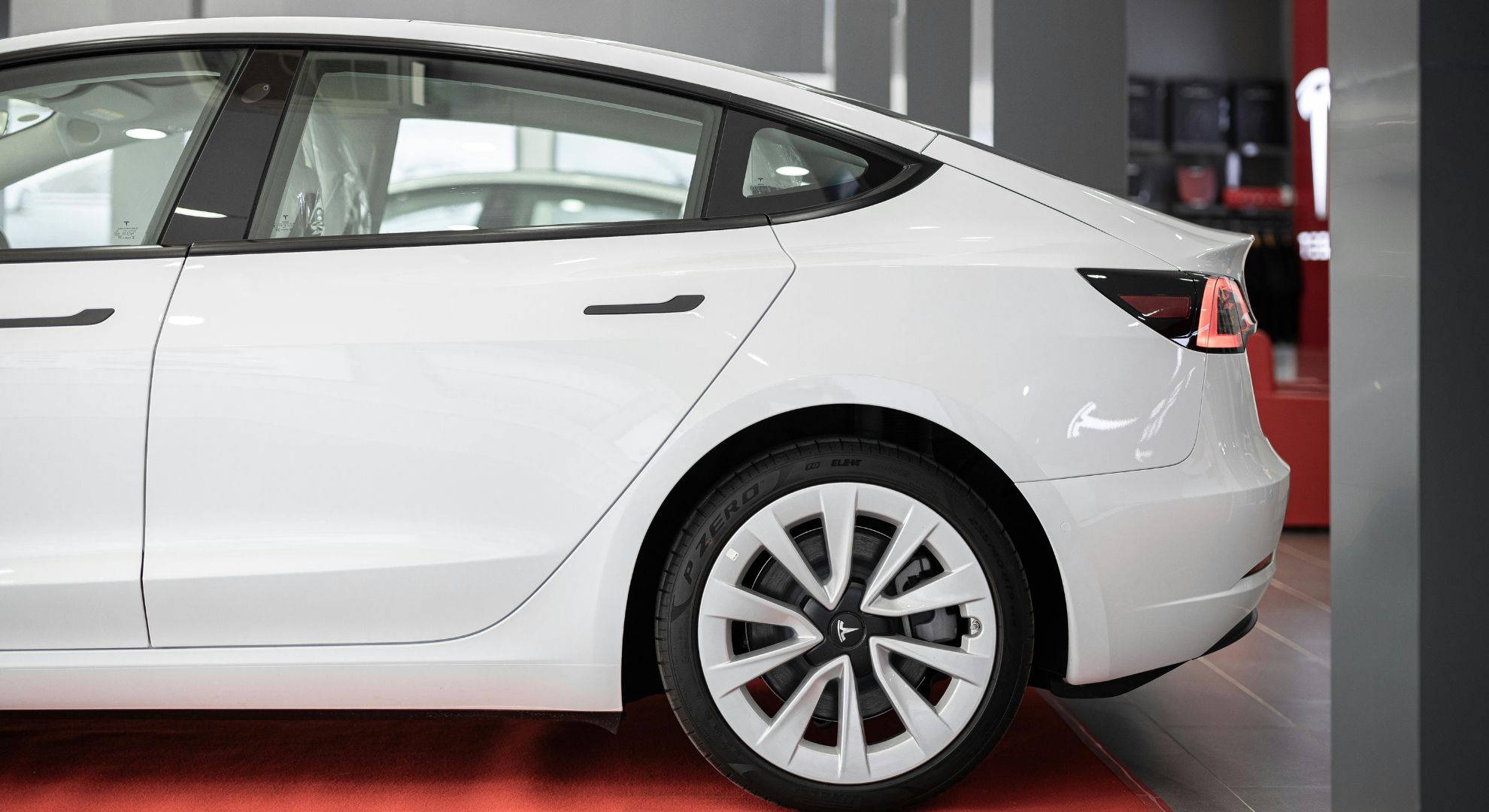
Will newer electric cars hold their value better?
It’s difficult to predict with certainty whether newer EVs will depreciate slower than their predecessors.
However, a mature EV market, improved consumer confidence, along with faster and more widely available charging infrastructure could help modern EVs to retain more value.
We may eventually see EV depreciation rates aligning with ICE cars. As the 2030 ban on the sale of new ICE cars draws nearer, it’s likely that more drivers will be incentivised to make the switch to an EV, increasing demand, which could help to slow depreciation for many models.
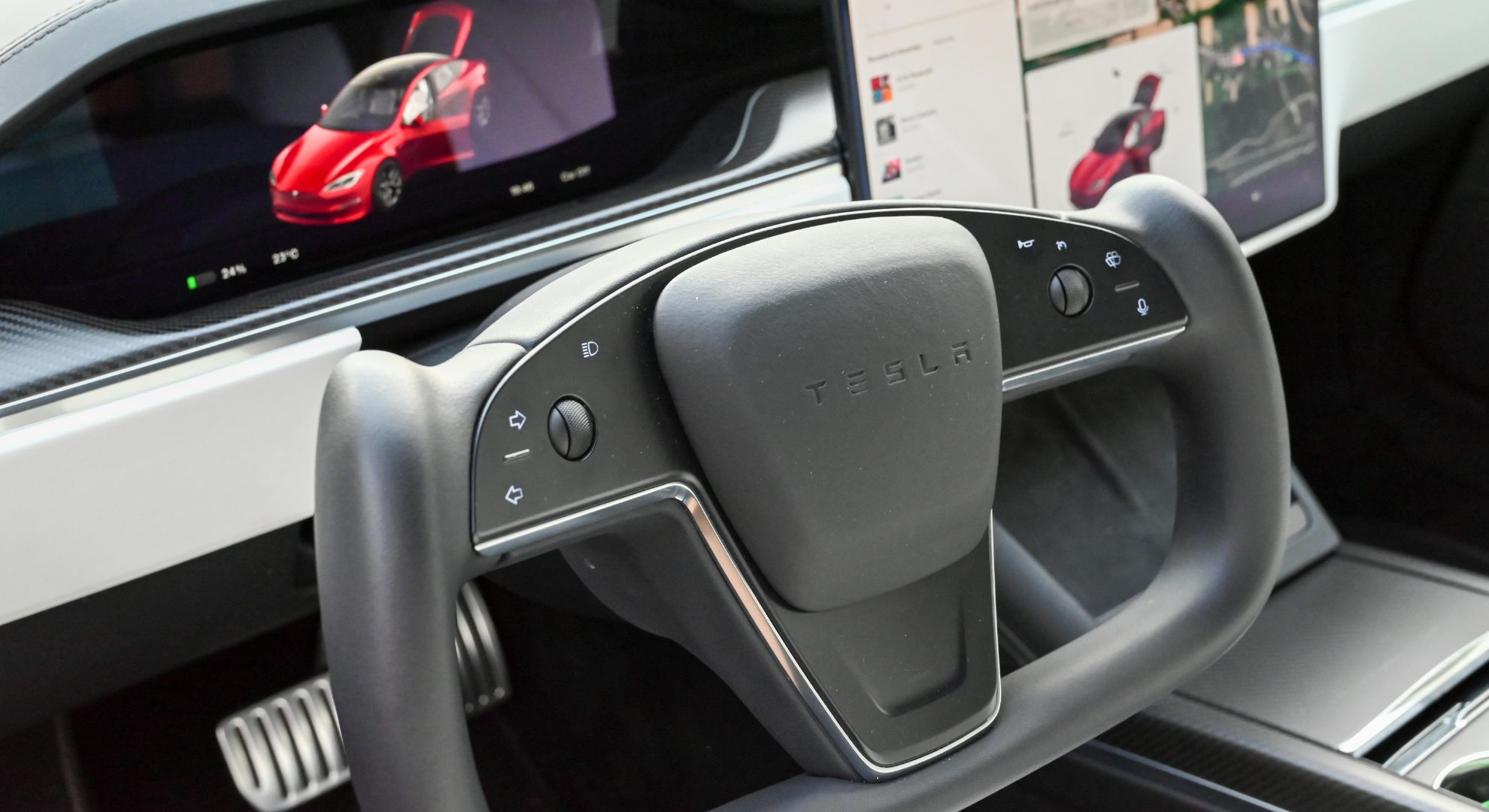
Other Frequently Asked Questions
Whether you’re planning to buy a new or used EV, depreciation matters, because it directly impacts the value of your investment. Depreciation is one of the most significant costs of car ownership.
Variables such as your choice of EV model, its age, range, technology, and shifts in consumer demand can all affect what your motor is worth over time.
If value for money sits high on your priority list, you should carefully research the potential depreciation of any EVs you are considering before you commit.
Yes, market data indicates that EVs often lose value faster than ICE equivalents within the first 36 months.
After this point, the rate of depreciation tends to slow, reaching roughly the same pace as a petrol or diesel car.
Unique factors such as rapidly evolving technology, high upfront costs, range anxiety, and battery degradation contribute to EVs depreciating at a faster rate than their ICE counterparts.











